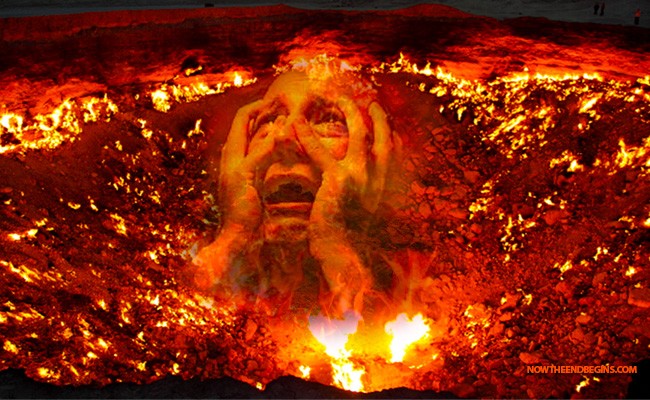ANSWER: The short answer is that the Bible does not teach that an ever-burning Hell, where those who do not repent in this life are consigned to suffer forever, exists. Ignorance regarding God’s plan of salvation for all mankind, the error of countless Biblical teachers of “reading into” the Scriptures what they want to believe (Eisegesis), plus other factors have led to the promulgation of this false teaching.
The doctrinal belief in a fiery hell, where people constantly suffer and are eternally burned, but never consumed, is primary supported by the Roman Catholic Church and the majority of Protestant-related groups who trace their history back to her. The Catholic teachings on the subject were greatly influenced by a book named the Divine Comedy, written by Dante Alighieri, around 1300 A.D. The concept of hell is far more the product of the wild, yet sincere, imaginations of humans than the product of careful bible study.
In the King James Old Testament, the original language word translated as hell in all thirty-one places it occurs is Sheol. Its literal meaning (Strong’s Concordance #H7585) is that it is a reference to a common grave. The word has no relationship whatsoever to our modern definition of a place of eternal punishing. In the KJV New Testament, only three Greek words are translated a total of twenty-three times as hell.
The Greek word Tartaroo (Strong’s #G5020), which is used only once in the entire New Testament (2Peter 2:4), means the deepest part of Hades. The second Greek word from which we get the English word hell is Hades (Strong’s #G86). Used ten times in the N.T., it is exactly equivalent to the Hebrew word Sheol and has an identical meaning (See Acts 2:27, Revelation 1:18, 20:13, etc.). The last original language word is Ghenna (Gehenna – Strong’s #G1067) which is found twelve times in Scripture. Jesus referred to this place in Matthew 5:22, 18:9 and other verses.
Gehenna, which in not translated as “hell” in several modern translations, was the name of a deep, narrow valley (the valley of Hinnom) that existed outside the gates of Jerusalem’s southern end. In ancient times, Israelites used it as a place where they could worship and offer sacrifices to pagan gods like Baal and Molech. One way these idols were thought to be appeased was through the practice of burning babies and children alive by placing them in the red hot hands of these evil idols (see 2Kings 16, 23, and 2Chronicles 28). The valley eventually was held in such disgust that Jews would use it to get rid of not only their trash but also the dead bodies of animals and humans.
By the time of Jesus, the area of the Gehenna valley had become incredibly offensive. Fires were kept burning in the valley day and night (which is where the phrase “unquenchable fire” is drawn from, see Matthew 3:12 and Luke 3:17) in order to consume what was thrown in it. Jesus referred to this “fire of Gehenna” in his Sermon on the Mount when he taught about the ultimate consequences of putting others down (Matthew 5:22).
God has something far BETTER planned than an ever-burning hell for those who do not repent in this life. His plan is to bring back to life, in a future resurrection after the Millennium is over, the countless billions who never had a FULL chance to understand and accept the gospel. It is at that time that their minds will be opened. They will be made to understand to truth, and then given their first real opportunity to live forever. Our heavenly Father is far more merciful, loving and kind than even most religious people believe!






Leave A Comment